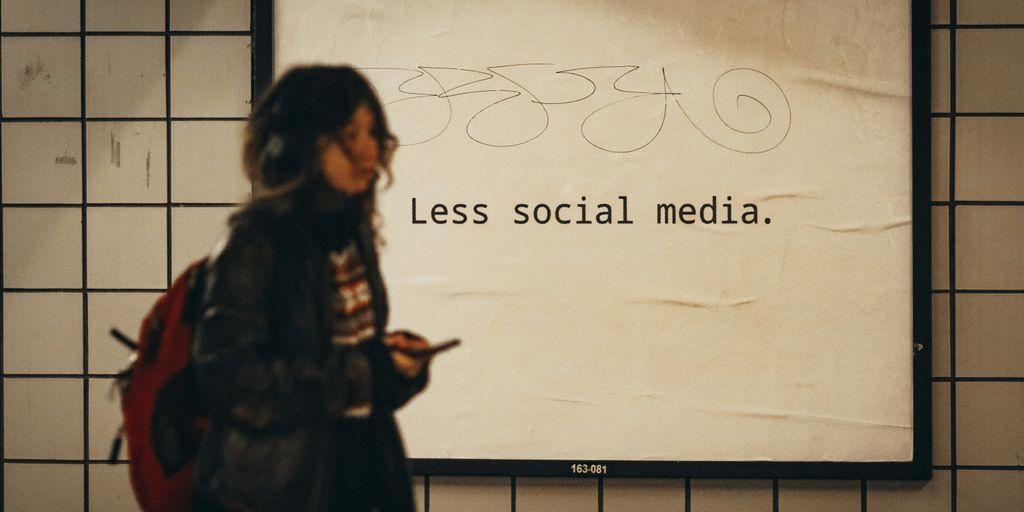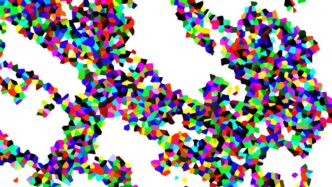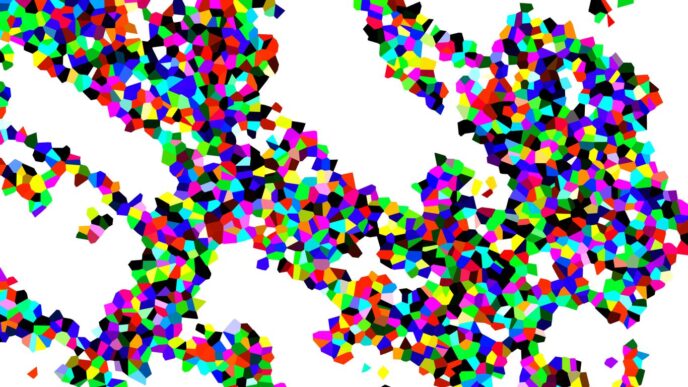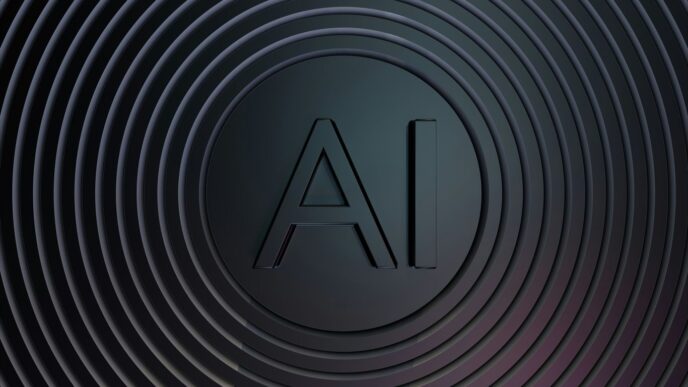Facebook, a huge part of our online lives, uses artificial intelligence in many ways. It helps show you what you want to see, keeps bad stuff off the site, and even helps people talk to each other across different languages. This article will look at how artificial intelligence in Facebook works now and what it might do in the future.
Key Takeaways
- Artificial intelligence in Facebook helps make your news feed unique to you, showing things it thinks you’ll like.
- AI tools are important for finding and taking down harmful content, but human review is still needed.
- Artificial intelligence in Facebook makes it easier for people to talk to each other, no matter what language they speak.
- Facebook has a big team working on new artificial intelligence ideas, which helps the whole AI field.
- The future of artificial intelligence in Facebook will likely mean even more personalized experiences and better ways to keep users safe.
Personalizing User Experiences With Artificial Intelligence In Facebook
Tailoring News Feeds Through AI Algorithms
Ever wonder how Facebook seems to know exactly what you want to see? It’s not magic; it’s AI! Sophisticated algorithms analyze your behavior – likes, shares, watch time – to predict what content you’ll find engaging. It’s like having a super-smart assistant who curates your feed just for you. This AI-driven approach personalizes content recommendations, ensuring users see relevant updates, enhancing satisfaction and platform engagement.
Ethical Considerations Of Personalized Content
Personalization is cool, but it’s not without its downsides. One big worry is the creation of "filter bubbles." These bubbles limit your exposure to different viewpoints, potentially reinforcing existing biases. Facebook is working on ways to address this, trying to strike a balance between giving you what you want and making sure you see a variety of perspectives. It’s a tough problem, and there’s no easy answer. It’s important to consider the ethical implications of personalized feeds.
Balancing Personalization And Diverse Viewpoints
So, how do you give people personalized experiences without trapping them in echo chambers? That’s the million-dollar question. Facebook is experimenting with different approaches, like showing users content from sources they don’t normally interact with. The goal is to broaden horizons and encourage more open-mindedness. It’s a constant balancing act, and it’s something Facebook is actively working on. They are trying to promote a healthy information ecosystem while still harnessing Instagram’s AI to personalize user experience.
Artificial Intelligence In Facebook For Content Moderation

Facebook is huge, and keeping it safe is a never-ending job. That’s where AI comes in, working hard to spot and deal with stuff that shouldn’t be there. It’s not perfect, but it’s a big help.
Identifying And Removing Harmful Content
AI is used to find and get rid of bad stuff like hate speech, fake news, and violent content. These AI systems learn from tons of data to spot patterns and trends, helping them get better at finding harmful content. It’s like teaching a computer to be a really good digital detective. The goal is to make Facebook a safer place for everyone. For example, AI can flag posts that violate community standards, allowing human moderators to review and take action. This helps to quickly address issues and prevent the spread of harmful content.
Challenges Of AI In Content Moderation
AI isn’t perfect. It can struggle with sarcasm, jokes, and different cultural contexts. Sometimes, it might take down a harmless post or miss something harmful. It’s a tough balancing act. The nuances of language and context can be tricky for algorithms to understand. This is why policy enforcement is so important. Here are some common challenges:
- Understanding context
- Detecting subtle hate speech
- Avoiding bias in algorithms
Combining AI Speed With Human Judgment
To make content moderation better, Facebook uses a mix of AI and human reviewers. AI can quickly scan through lots of content, and then human reviewers can take a closer look at the stuff AI flags. This way, they can use human judgment to make sure the right decisions are made. It’s about using the best of both worlds to keep the platform safe. This collaborative approach helps to improve accuracy and fairness in content moderation. It also allows for continuous learning and improvement of AI models. The combination of AI and human review is essential for combating misinformation with AI.
Breaking Down Barriers With Artificial Intelligence In Facebook
AI-Powered Translation Tools For Global Communication
Imagine chatting with someone across the globe as if you spoke the same language. That’s the goal! Facebook uses AI to power translation tools, aiming to make communication seamless for everyone. These tools are getting better all the time, making it easier to connect with people regardless of what language they speak. It’s pretty cool to see how technology can bring people closer together. I remember struggling to understand posts in other languages, but now it’s just a click away. These translation tools are a game changer.
Improving Accessibility For Users Worldwide
AI isn’t just about translation; it’s also about making the platform accessible to everyone, including users with disabilities. This includes things like:
- Generating automatic captions for videos, which is super helpful for people who are deaf or hard of hearing.
- Providing alternative text descriptions for images, so people who are blind or visually impaired can understand what’s in a picture. It’s like having a digital assistant describe everything to you.
- Making the interface easier to navigate with screen readers and other assistive technologies. Facebook is working on accessibility features to make the platform more inclusive.
It’s great to see Facebook thinking about how to make its platform usable for everyone. It’s not just about connecting the world, but connecting it in a way that’s fair and accessible.
Fostering Connections Across Languages
AI helps bridge language gaps, but it also helps people connect on a deeper level. Think about it: you can now easily understand different cultures, perspectives, and ideas. This can lead to:
- More meaningful conversations with people from different backgrounds.
- A better understanding of global issues and challenges.
- The ability to collaborate with people from all over the world on projects and initiatives.
It’s not just about translating words; it’s about building bridges and creating a more connected world. I think that’s a pretty powerful thing. It’s amazing how AI innovations can help us understand each other better.
Facebook’s Artificial Intelligence Research And Development
Facebook isn’t just using AI; they’re actively trying to make it better. It’s like they have a whole lab dedicated to figuring out what AI can really do. They’re not just tweaking existing stuff; they’re trying to invent new things. It’s a big deal, and it affects more than just what you see on Facebook. Let’s get into it.
Pushing The Boundaries Of AI Innovation
Facebook’s AI research isn’t just about making the site run smoother; it’s about pushing the limits of what AI can do. They’re exploring new algorithms, new ways to process data, and new applications for AI that could change how we interact with technology. It’s like they’re trying to build a better engine, not just soup up the car. This research has implications far beyond social media, potentially impacting fields like healthcare and education. It’s a long game, but the potential payoff is huge. For example, they are working on AI business operations to improve efficiency.
Key Areas Of Cutting-Edge Research
Facebook’s AI research covers a lot of ground. Here’s a quick rundown:
- Natural Language Processing (NLP): Making computers better at understanding and responding to human language. Think smarter chatbots and more accurate translations.
- Computer Vision: Enabling computers to "see" and interpret images and videos. This is crucial for content moderation and augmented reality applications.
- Machine Learning (ML): Developing algorithms that can learn from data without being explicitly programmed. This is the foundation for personalized experiences and predictive analytics.
They’re also investing heavily in areas like robotics and AI ethics. It’s a broad portfolio, reflecting the diverse potential of AI.
Impact On The Broader AI Community
Facebook’s AI research isn’t happening in a vacuum. They actively share their findings with the broader AI community through publications, open-source projects, and collaborations with universities. It’s like they’re contributing to a shared pool of knowledge, helping everyone advance the field. This collaborative approach fosters innovation and accelerates the development of new AI technologies. They even launched a Deepfake Detection Challenge to help the community.
The Future Of Artificial Intelligence In Facebook

What’s next for AI at Facebook? It’s a big question, and honestly, it’s tough to say exactly. But we can make some educated guesses based on what’s already happening and where the tech seems to be headed. It’s safe to say that AI will only become more deeply integrated into the platform, changing how we interact with it in ways we might not even imagine yet. Artificial intelligence has rapidly evolved, and Facebook is at the forefront.
Anticipating More Sophisticated Personalization
Expect personalization to get even more granular. Right now, AI tailors your feed based on likes and shares. In the future? It could analyze your facial expressions while watching videos to gauge your true interest, or even predict what kind of content will improve your mood based on your recent activity. This level of personalization raises some serious privacy questions, but the potential for a truly customized experience is definitely there.
Advancements In Risk Prediction And Mitigation
AI is already used to flag potentially harmful content, but it’s not perfect. The future holds the promise of much more accurate risk prediction. Imagine AI that can identify emerging misinformation campaigns before they go viral, or detect signs of potential self-harm in user posts and proactively offer support. This could significantly improve user safety and well-being.
Navigating Ethical Considerations In AI Development
As AI becomes more powerful, the ethical considerations become even more critical. We’re talking about things like algorithmic bias, data privacy, and the potential for AI to be used for manipulation. Facebook will need to prioritize ethical development practices, ensuring that AI is used responsibly and in a way that benefits all users. It’s not just about building cool tech; it’s about building tech that aligns with our values. The company has launched a Deepfake Detection Challenge to combat misinformation.
Artificial Intelligence In Facebook For Enhanced Safety
Facebook is working hard to make its platform a safer place, and AI is a big part of that effort. It’s not perfect, but they’re constantly trying to improve how they use AI to protect users. The goal is to create a more positive and secure online experience for everyone.
Combating Misinformation With AI
AI is used to spot and flag fake news and misleading information. It looks for patterns and clues that humans might miss. It’s a tough job because misinformation is always evolving, but Facebook is investing in AI to stay ahead. Here’s how they’re doing it:
- Fact-checking partnerships: AI helps identify content for fact-checkers to review.
- Pattern recognition: AI can spot coordinated campaigns spreading false information.
- Reducing distribution: AI helps limit the spread of flagged content.
Protecting User Data Through Advanced AI
Keeping user data safe is a top priority. AI plays a role in detecting and preventing security threats. It helps identify suspicious activity and protect accounts from being hacked. Facebook uses AI safety to analyze login patterns and flag unusual behavior, like logins from unfamiliar locations. They also use it to:
- Detect phishing attempts: AI can identify and block malicious links.
- Enhance account security: AI helps protect accounts from unauthorized access.
- Improve data encryption: AI can help improve the security of data storage.
Promoting A Positive Online Experience
AI is also used to create a more positive environment on Facebook. This includes identifying and removing content that violates community standards, such as hate speech and bullying. It’s not just about removing bad stuff, though. AI can also help promote positive interactions. For example, AI-powered translation tools help people connect across languages. Here are some other ways AI helps:
- Detecting hate speech: AI helps identify and remove hateful content.
- Combating bullying: AI can spot and flag bullying behavior.
- Promoting positive content: AI can help surface uplifting and informative content.
Conclusion
So, what’s the big takeaway here? Basically, AI is everywhere on Facebook, even if you don’t always see it. It’s the thing making your news feed feel like it knows you, and it’s also working hard to keep bad stuff off the platform. Sure, there are still some tricky parts to figure out, like making sure the AI is fair and doesn’t mess things up. But Facebook is really putting a lot into AI research. This means we’ll probably see even more cool stuff down the road that helps people connect better and in a safer way. It’s pretty wild to think about how much AI has changed Facebook, and it’s only going to keep changing things, not just for social media, but for a lot of other areas too.
Frequently Asked Questions
Does Facebook use my data to train its AI?
Yes, Facebook uses information that has been made anonymous and grouped together to teach its AI systems. This helps make their services better for everyone.
How does Facebook make sure its AI is fair and doesn’t show favoritism?
Facebook works hard to make sure its AI is fair and doesn’t show favoritism. They do this by doing lots of tests and checks to find and fix any unfairness in their AI programs. This is something they are always working on.
What kind of jobs are there in AI at Facebook?
Facebook hires many people who work with AI, like researchers, engineers, and experts. So, there are many job openings in AI at Facebook.
How does AI make my Facebook news feed special for me?
AI helps Facebook figure out what you like and shows you content that it thinks you’ll find interesting. This means your news feed is unique to you.
How does AI help keep Facebook safe from harmful content?
AI helps Facebook find and remove bad stuff like hate speech, fake news, and violent content. It’s like a digital guard dog, keeping the platform safer.
Can AI help me talk to people who speak different languages on Facebook?
AI powers tools that can translate languages instantly, making it easier for people from different countries to talk to each other. It also helps people with disabilities use Facebook better by describing images and other things.














